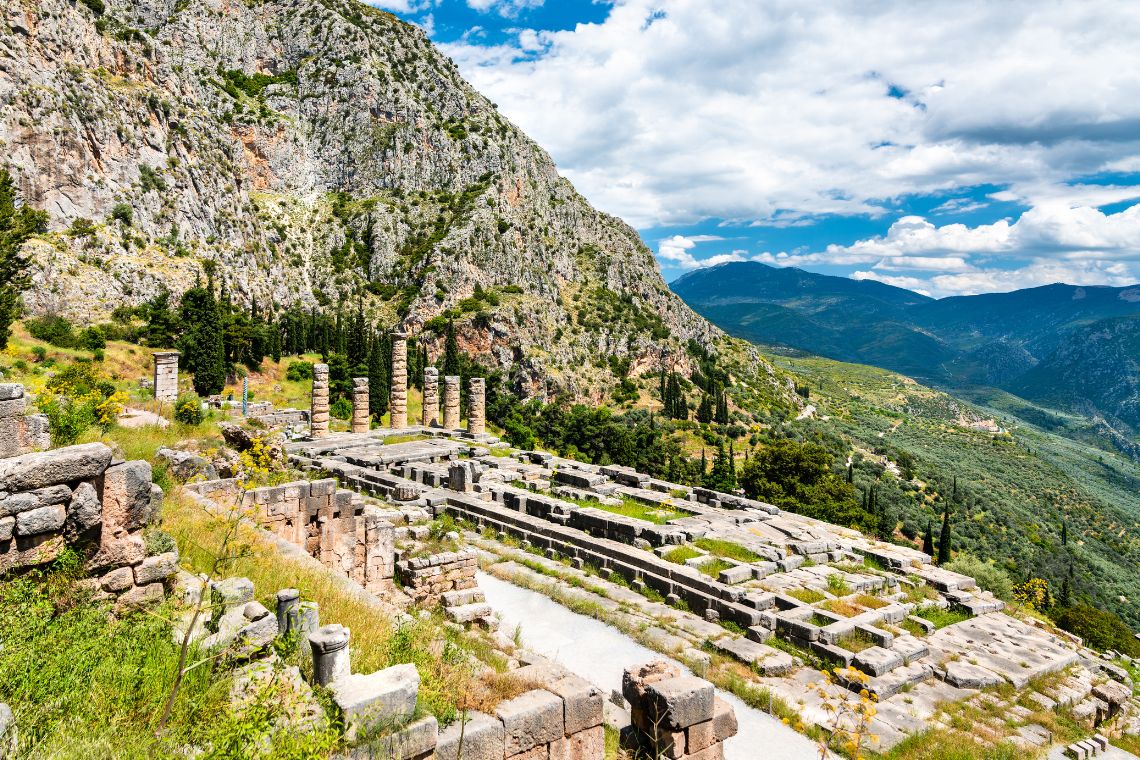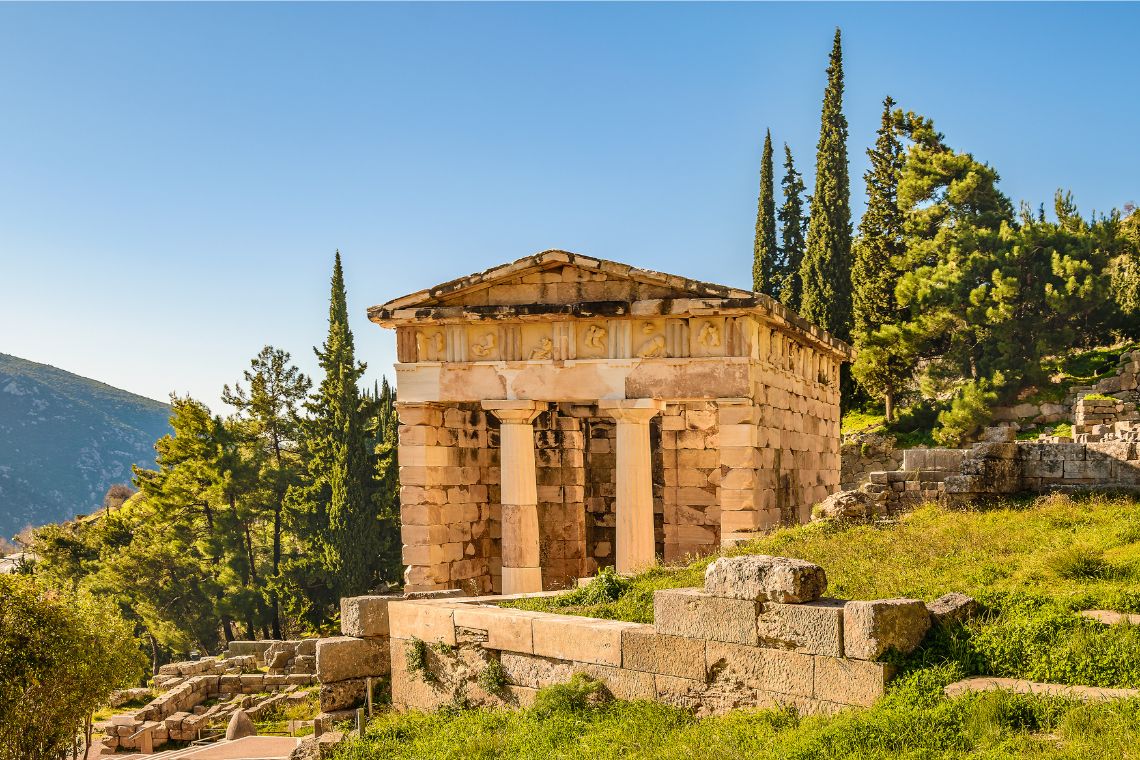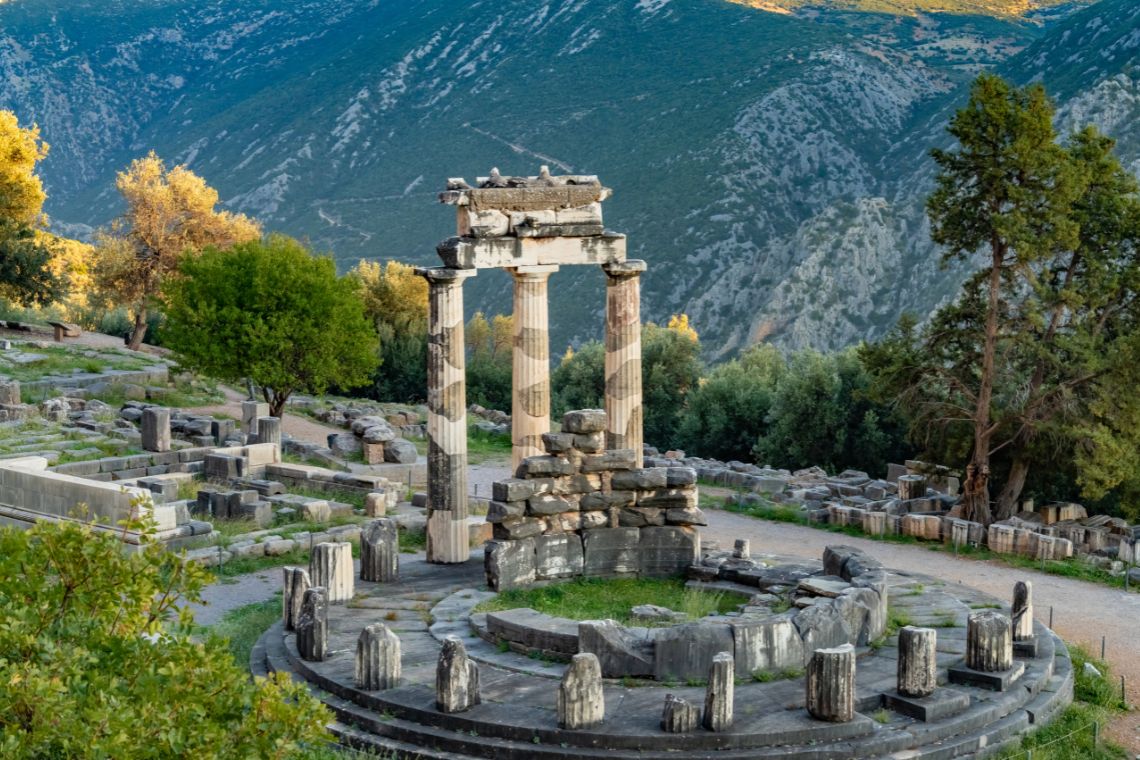5-Day Percy Jackson Mythology Trip
During the Roman period, Delphi became a cosmopolitan city that was endowed with new buildings and structures by various Roman emperors. Despite the shift in importance of the oracle, the site remained a bustling center of trade and religion. However, the decline of paganism and the rise of Christianity meant that Delphi was eventually abandoned in the late Roman period.
Today, Delphi is recognized as a UNESCO World Heritage Site due to its cultural, historical and artistic significance. A symbol of Ancient Greece, the ruins of Delphi display a fascinating blend of architectural styles such as Doric, Ionic and Corinthian, illustrating the continuous evolution of the site over the centuries.
Excavations in Ancient Delphi
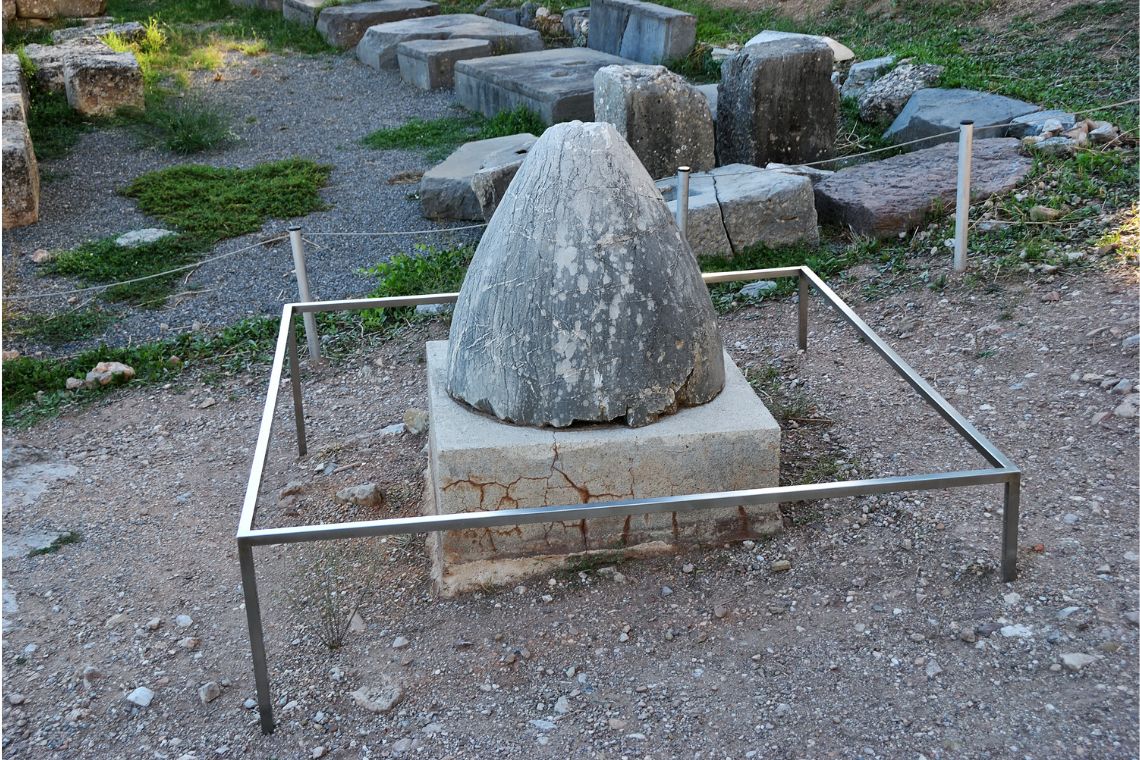
Navel stone in Delphi - Credits: znm / Canva
Excavations of the ancient site of Delphi began in the late 19th century by the French Archeological School of Athens. The leading archeologist was Théophile Homolle. During this time, several important finds were made, including the Treasury of Athens, the Altar of the Chians and the Rock of the Sibyl. All these finds and many more helped us to understand the religious and social function of the site as well as the architecture and art of the time.
Today, our knowledge of this place is enormous. Archeologists have uncovered a large number of monuments and buildings, such as the Temple of Apollo, the theater and the stadium. In addition, the nearby ancient city of Krisa, a commercial and religious center, provides further important details about everyday life at the time.
The archeological finds in Delphi offer us a fascinating insight into the life and beliefs of the people of ancient Greece.
Delphi Greece in Art and Culture
Delphi is closely associated with the god Apollo. One of the most important mythological stories is the story of Apollo and the slaying of the serpent Python. According to the myth, Python guarded the oracle at Delphi until Apollo arrived, killed the serpent and claimed the title of god of prophecy for himself. You can find out more about this story in the relevant section on the Realm of the Sun.
During the period of the Sacred Wars in the 4th and 5th centuries BC, Delphi was at the center of regional conflicts. A series of wars were fought over control of the site, which illustrates the significance of Delphi beyond faith and art in the geopolitical and power play of the rulers of the time.
In addition to the connection between Apollo and Delphi, the site was also an important center for artistic competitions, such as the Pythian Games. The Pythian Games were one of the four major competitions in the whole of Greece. These games featured athletic, literary and musical competitions on a par with the Olympic Games and were held at different times of the year. The Pythian Games were held in honor of Apollo and served as a celebration of religious devotion and artistic excellence.
Several artistic masterpieces also emerged from Delphi, including the renowned bronze statue called the Sphinx of Naxos. This intricate work of art, a mythological creature with a human head, bird's wings, and a lion's body, stood guard over Delphi, casting a mysterious air over the site.
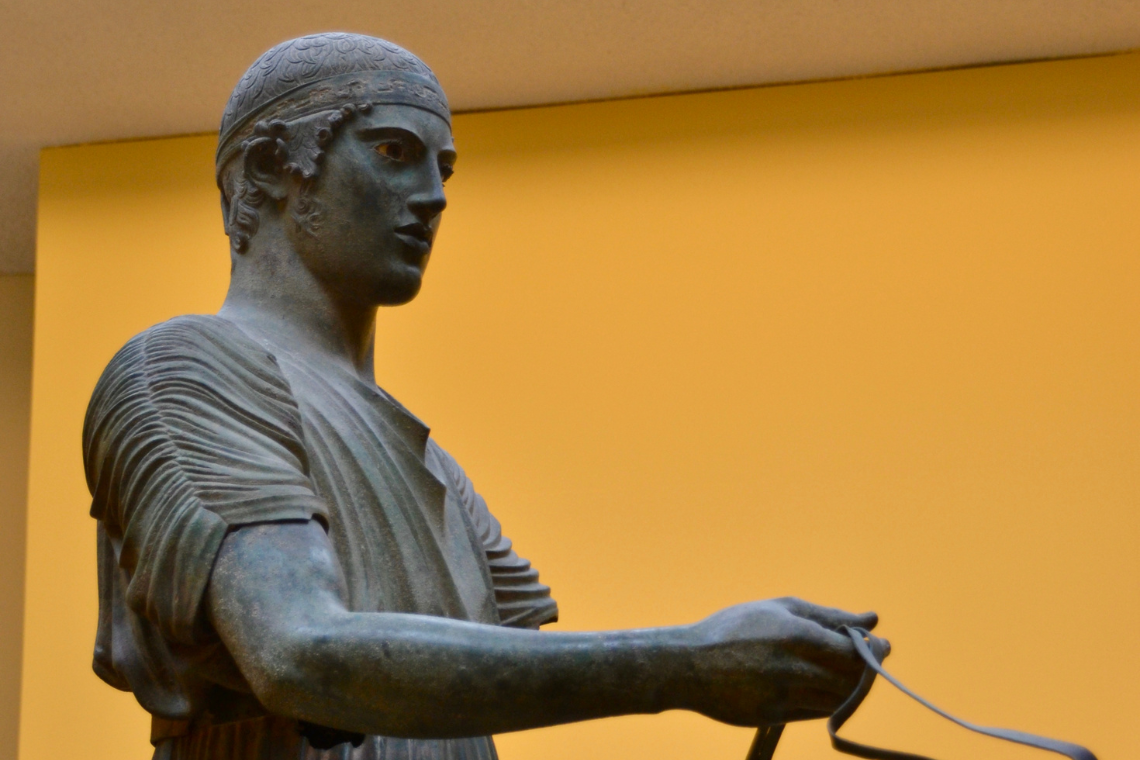
The Charioteer, Delphi - Credits: Mary Baratto / Canva
The famous Charioteer of Delphi or “Heniochus”, is a remarkable bronze statue created in the 5th century BC. The details of the statue are remarkable and it was created in honor of a victorious charioteer.
Visiting Delphi Greece Today: A Travel Guide
The best time to visit majestic Delphi is during the spring and fall, when the weather is mild and the landscape is lush. You will be amazed by the unique views combined with the ancient ruins.
To reach Delphi from Athens, you can take a bus or rent a car. Delphi is about a 2.5-hour drive from Athens. For a unique experience, consider a guided tour such as the Percy Jackson Delphi Day Trip or a Greek Mythology Tour, which combines myth and history as you explore the ancient sites.
The main attractions in Delphi are the archeological park and museum. The modern city of Delphi is also worth a visit as it offers a mix of traditional charm and modern amenities.
When visiting Delphi, you can follow these tips:
- Wear comfortable shoes and clothing: The archeological park involves a lot of walking on uneven terrain.
- Stay hydrated: Take a reusable water bottle with you, which you can fill up at the park's fountains.
Conclusion
Several factors contribute to the preservation and protection of Delphi's authenticity, including efforts to preserve both the natural environment and the rich mythological tradition.
Delphi played an important role not only in the religion of the ancient Greeks but also in the geopolitical and political system. The various historical buildings are interwoven with local myths and history that have been passed down from generation to generation.
Art and sport played a major role in the city's history, as you can see for yourself on-site, in the archeological museum of Delphi and in the evidence of various writers of the time, such as Pausanias.
Visitors to Delphi today can see remarkable examples of ancient Greek culture and architecture while immersing themselves in the stunning natural surroundings of the site. The status as a UNESCO World Heritage Site underlines the importance of preserving this historically and culturally significant site for future generations.
Frequently Asked Questions
What historical monuments can be seen in Delphi?
In Delphi, visitors can explore a variety of historical monuments, including the Temple of Apollo, the Delphi Theatre, the Treasury of the Athenians, and the Sanctuary of Athena Pronea. Additionally, the Delphi Archaeological Museum displays a rich collection of artifacts uncovered at the site.
What significant role did Delphi play in Ancient Greek religion and mythology?
Delphi was an important religious and cultural center in ancient Greece, known as the home of the Oracle of Apollo. According to mythology, Zeus released two eagles, one from the east and one from the west, and they met in Delphi, which was declared the center of the world. The high priestess, known as the Pythia, would communicate Apollo's messages to those seeking divine guidance.
How can one travel from Athens to Delphi?
Traveling from Athens to Delphi can be done by car, bus, or guided tour. The journey takes approximately 2.5 to 3 hours by car, and there are also daily buses connecting the two locations. For a more informative experience, visitors can opt for guided tours that provide historical context and often include stops at other nearby sites.
What are some notable facts about the ancient site of Delphi?
Delphi was considered the "navel of the Earth" in ancient Greece and was an important meeting place for the Amphictyonic League, a religious and political coalition of Greek city-states. The ancient site was also home to the Pythian Games, a significant athletic and artistic competition held in honor of Apollo.
What accommodations are available for visitors in Delphi, Greece?
Visitors to Delphi can choose from a range of accommodations, including hotels, guesthouses, and vacation rentals in the nearby town of Delphi or the village of Arachova.
